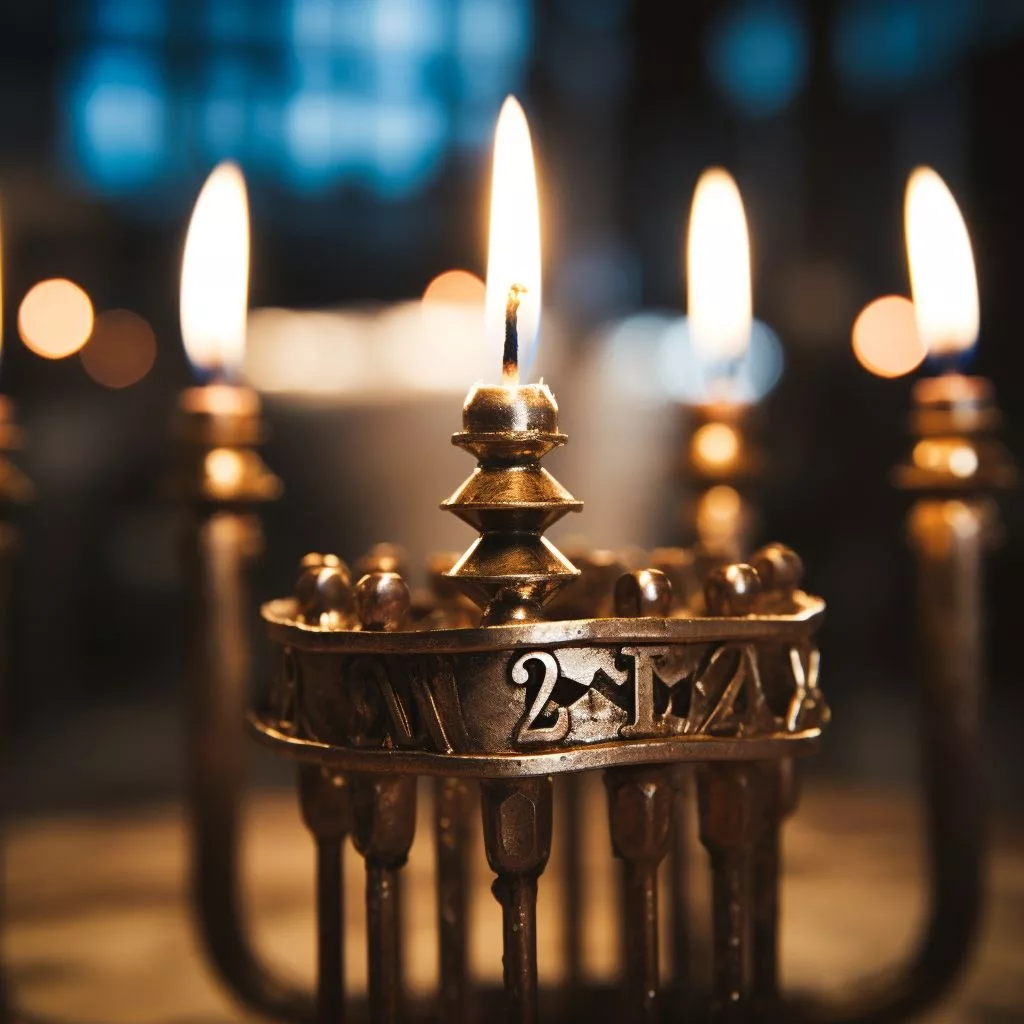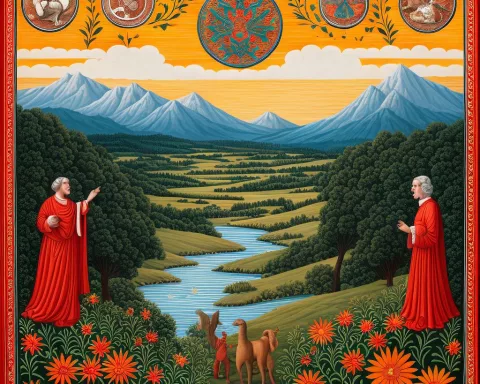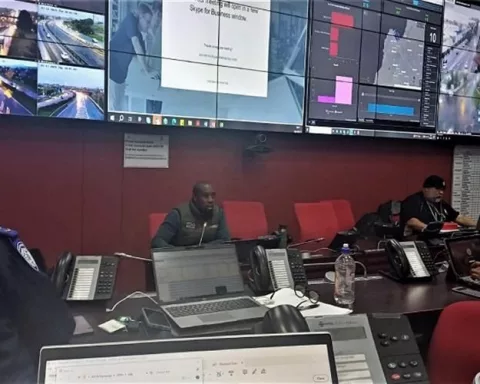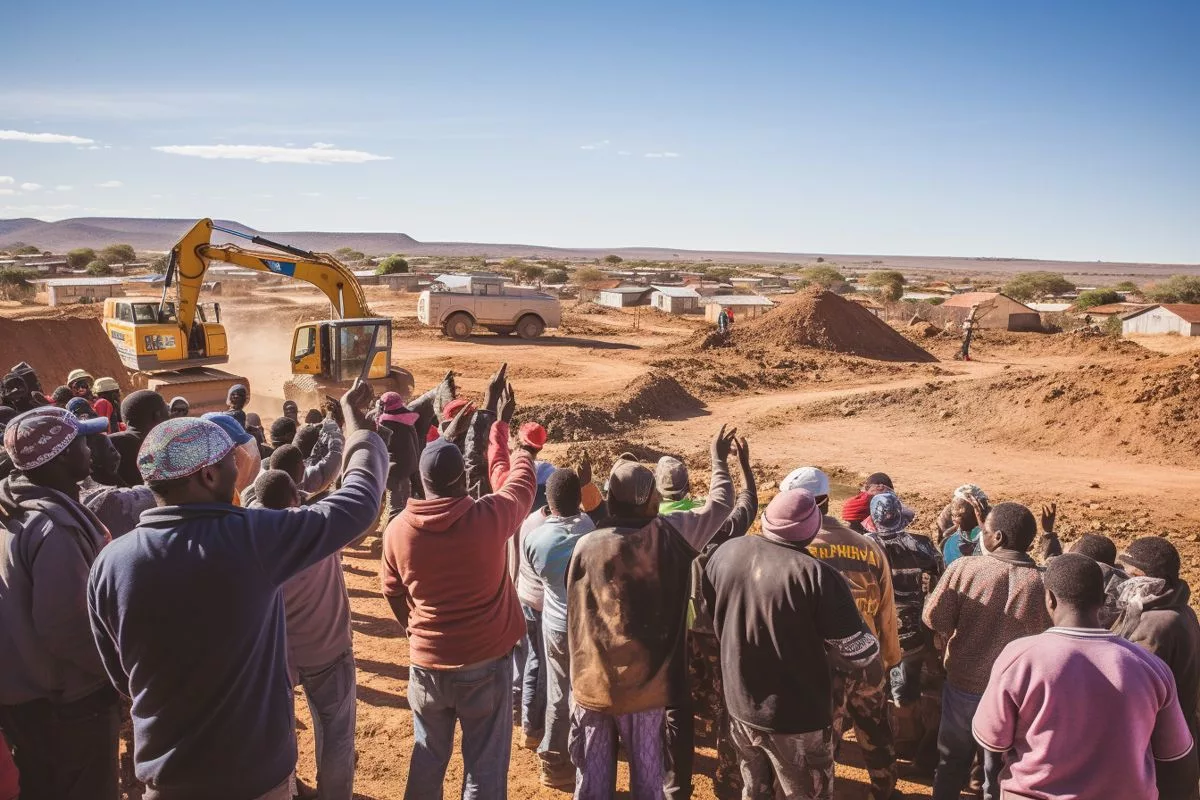This unique gathering transcends religious boundaries and stands as a symbol of shared values and dedication to harmony. Claremont Main Road Mosque hosted an interfaith Hanukkah celebration, bringing together over 50 people of various faiths to celebrate unity and prioritize humanity over all else. The event, organized by SAJFP, highlighted the spirit of interfaith gathering and ended with a call for peace and respect for all.
Claremont Main Road Mosque hosted an interfaith Hanukkah celebration, organized by South African Jews for a Free Palestine. Over 50 people of various faiths gathered to pray and celebrate unity amidst traditional Jewish customs. Speakers highlighted the spirit of interfaith gathering, and the event ended with a call to prioritize humanity over all else. SAJFP hopes to nurture community relations and camaraderie through interfaith services. This unique gathering transcends religious boundaries and stands as a testament to shared values and dedication to harmony, peace, and respect for all.
Interfaith Gathering: A Symbol of Unity
Under the shadow of an imposing minaret and welcoming arches, the Claremont Main Road Mosque became the setting of an extraordinary story of togetherness. This story unfolded in the form of a Hanukkah celebration that took place on a recent Friday evening within the mosque’s walls. The event marked the eighth such gathering organized by the South African Jews for a Free Palestine (SAJFP), who aptly named the occasion “Shabbos against genocide in Palestine.” The event was planned to coincide with the second night of Hanukkah, thus presenting a beacon of interfaith bonding during a deeply respected Jewish festivity.
On this special night, more than 50 people hailing from various faiths, including Judaism, Christianity, and Islam, flocked to the Claremont Mosque. This was a move that defied typical practices and extolled unity’s spirit. The service commenced outside the mosque shortly after six in the evening, following traditional Sabbath customs. Amid the dusk, soulful hymns ascended into the sky while silent prayers and moving poems set the tone for an evening of mutual faith and comprehension.
One of the most symbolic instances of the evening was the lighting of a Hanukkah menorah candle, which bore the word “ceasefire.” This simple yet powerful act was a poignant reminder of the evening’s objective – to call for an end to conflict and strife.
Speakers Highlight the Spirit of Interfaith Gathering
The evening’s speakers were drawn from a diverse pool of religious leaders and advocates. Anthony Hodgson of SAJFP, Imam Rashied Omar of the Claremont Mosque, and Dean Michael Weeder of the Anglican Church each took their turn to speak to the crowd. Their messages, filled with knowledge and conviction, paid homage to the spirit of this exceptional interfaith congregation.
As the clock struck half-past seven, the congregation moved inside the mosque for the Muslim Maghrib prayer. In his address, Imam Omar lauded the shared service as a rare occurrence. He reminded the audience of their gathering’s extraordinary nature, rejoicing in its uniqueness amidst the challenges that South Africa faces. He emphasized the need to appreciate, preserve, and celebrate the interfaith movement, considering it a valuable gift to the world.
Maulana Syed Aftab Haidar followed by echoing these sentiments, acknowledging the event’s distinctiveness. In a world often characterized by division, the power of hosting a Jewish service in a mosque stood as a potent symbol of unity, he noted.
Advocacy for Humanity and Future Aspirations
The congregation also heard from Anglican theologian Michael Worsnip, who gave a fervent appeal to all faiths. He challenged the followers of Judaism, Christianity, and Islam to prioritize humanity over all else, contending that faith without this core commitment is meaningless.
Prior to the service, the SAJFP conveyed its mission against the exploitation of Judaism and the remembrance of their forebears for genocidal purposes. They reiterated their dedication to the freedom and equal rights of Palestine, asserting that true safety for Jews was dependent on these principles.
In their pursuit to mend the deep-seated fragmentation and division, the SAJFP conveyed their hope for the Shabbos service to nurture community relations and camaraderie. They also declared their plans for another interfaith service in Bo-Kaap on the last night of Hanukkah.
The unique interfaith gathering at Claremont Main Road Mosque transcends the scope of a typical religious function. It stands as a testament to the shared values inherent in our humanity and a ray of hope in a world often marred by conflict and division. The success of the event firmly underscores that regardless of our varied beliefs and customs, we are united by a common dedication to harmony, peace, and respect for all.
1. What was the purpose of the interfaith Hanukkah celebration at Claremont Main Road Mosque?
The purpose of the interfaith Hanukkah celebration at Claremont Main Road Mosque was to bring people of various faiths together to celebrate unity and prioritize humanity over all else.
2. Who organized the event?
The event was organized by South African Jews for a Free Palestine (SAJFP).
3. Who attended the celebration?
Over 50 people of various faiths attended the celebration, including those from Judaism, Christianity, and Islam.
4. What was the significance of lighting a Hanukkah menorah candle with the word “ceasefire”?
The lighting of a Hanukkah menorah candle with the word “ceasefire” was a poignant reminder of the evening’s objective – to call for an end to conflict and strife.
5. What message did the speakers convey during the event?
The speakers conveyed messages of unity, appreciation, and advocacy for humanity. They emphasized the need to prioritize humanity over all else and to celebrate the interfaith movement.
6. What are the future aspirations of SAJFP?
SAJFP declared their plans for another interfaith service in Bo-Kaap on the last night of Hanukkah. They hope for the Shabbos service to nurture community relations and camaraderie and to mend deep-seated fragmentation and division.












